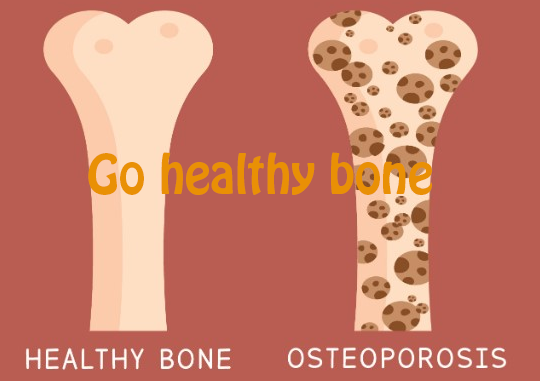Did you know that vitamin A, commonly associated with vision health, also plays a crucial role in keeping your heart healthy? In this article, we will uncover the benefits of vitamin A for your cardiovascular system and delve into the science behind its effectiveness.
Vitamin A, a fat-soluble nutrient, acts as a potent antioxidant, protecting your heart from oxidative stress and damage caused by free radicals. It also supports the production of red blood cells and enhances the immune system, reducing the risk of cardiovascular diseases.
Research has shown that vitamin A aids in maintaining proper heart function by regulating blood pressure, reducing inflammation, and preventing the buildup of plaque in the arteries. Studies have also indicated that a deficiency in vitamin A may contribute to heart-related problems.
To ensure you're getting enough of this essential nutrient, it's important to consume a balanced diet rich in foods like carrots, sweet potatoes, spinach, and liver, which are high in vitamin A. Alternatively, you can talk to your healthcare provider about the possibility of supplementation.
Join us as we explore the numerous benefits and scientific evidence behind why vitamin A is essential for maintaining a healthy heart.
The role of Vitamin A in maintaining cardiovascular health
Vitamin A, a vital nutrient for overall health, also plays a key role in maintaining cardiovascular health. It acts as an antioxidant, protecting the heart from oxidative stress and damage caused by free radicals. This nutrient is involved in the production and regulation of various proteins and enzymes that are essential for proper heart function.
One of the primary functions of vitamin A in cardiovascular health is its ability to regulate blood pressure. High blood pressure is a significant risk factor for heart disease. Vitamin A helps in maintaining normal blood pressure levels, reducing the strain on the heart and blood vessels. By ensuring optimal blood pressure, vitamin A lowers the risk of developing heart-related problems.
In addition to regulating blood pressure, vitamin A also helps reduce inflammation in the cardiovascular system. Chronic inflammation is linked to the development of atherosclerosis, a condition characterized by the buildup of plaque in the arteries, which can lead to heart attacks and strokes. Vitamin A's anti-inflammatory properties help prevent the progression of these conditions, maintaining the health of the heart and blood vessels.
Furthermore, vitamin A supports the production of red blood cells, ensuring an adequate supply of oxygen to the heart and other organs. It also enhances the immune system, reducing the risk of infections that can affect cardiovascular health. By strengthening the immune system, vitamin A helps protect the heart from disease and promotes overall well-being.
Scientific studies supporting the link between Vitamin A and a healthy heart
Numerous scientific studies have provided substantial evidence supporting the link between vitamin A and a healthy heart. These studies have shed light on the mechanisms through which vitamin A exerts its beneficial effects on cardiovascular health.
A study published in the American Journal of Clinical Nutrition found that individuals with higher levels of vitamin A in their blood had a significantly reduced risk of developing coronary heart disease. The study concluded that higher vitamin A intake from food sources was associated with a lower risk of heart disease, highlighting the importance of incorporating vitamin A-rich foods into the diet.
Another study published in the Journal of Nutrition investigated the relationship between vitamin A intake and blood pressure levels. The researchers found that individuals with higher vitamin A intake had lower blood pressure levels, suggesting that vitamin A plays a role in maintaining optimal blood pressure. This finding further supports the link between vitamin A and heart health.
Furthermore, a study conducted by the American Heart Association demonstrated that vitamin A supplementation reduced the risk of heart failure in individuals with a history of heart attacks. The researchers found that vitamin A supplementation improved heart function and reduced the risk of heart failure recurrence. This study provides strong evidence for the beneficial effects of vitamin A on heart health.
These scientific studies, among others, highlight the importance of vitamin A in maintaining a healthy heart. The evidence supports the role of vitamin A in regulating blood pressure, preventing plaque buildup, and protecting against heart disease, further emphasizing the need to ensure adequate vitamin A intake for optimal cardiovascular health.
Food sources rich in Vitamin A for heart health
To ensure you're getting enough vitamin A for optimal heart health, it's important to incorporate foods that are rich in this essential nutrient into your diet. Here are some excellent food sources of vitamin A:
1. Carrots: Carrots are one of the best sources of vitamin A. They are not only delicious but also packed with beta-carotene, a precursor to vitamin A. Adding carrots to your salads, stir-fries, or enjoying them as a healthy snack can help boost your vitamin A intake.
2. Sweet Potatoes: Sweet potatoes are another great source of vitamin A. They are rich in beta-carotene and provide a host of other health benefits. Roasting or baking sweet potatoes can help preserve their nutrient content while adding a delicious twist to your meals.
3. Spinach: Spinach is a nutrient powerhouse, and vitamin A is no exception. This leafy green is packed with various vitamins and minerals, including vitamin A. Adding spinach to your salads, smoothies, or sautéing it as a side dish can help increase your vitamin A intake.
4. Liver: Liver, particularly beef liver, is incredibly rich in vitamin A. It is also a good source of other essential nutrients like iron and vitamin B12. Incorporating liver into your diet, such as in pâtés or sautéed dishes, can significantly boost your vitamin A levels.
By including these vitamin A-rich foods in your diet, you can ensure that you're getting an adequate amount of this essential nutrient to support heart health and overall well-being.
Recommended daily intake of Vitamin A for optimal heart health
To maintain optimal heart health, it's important to consume the recommended daily intake of vitamin A. The recommended daily intake varies depending on age, sex, and life stage. Here are the general guidelines for vitamin A intake:
1. Infants (0-6 months): 400 micrograms (mcg) or 1,333 International Units (IU)
2. Infants (7-12 months): 500 mcg or 1,666 IU
3. Children (1-3 years): 300 mcg or 1,000 IU
4. Children (4-8 years): 400 mcg or 1,333 IU
5. Children (9-13 years): 600 mcg or 2,000 IU
6. Adolescents (14-18 years): 900 mcg or 3,000 IU for males, 700 mcg or 2,333 IU for females
7. Adults (19 years and older): 900 mcg or 3,000 IU for males, 700 mcg or 2,333 IU for females
It's important to note that excessive vitamin A intake can be toxic and lead to adverse health effects. Therefore, it's crucial to follow the recommended daily intake guidelines and consult with a healthcare professional if considering vitamin A supplementation.
By ensuring you're meeting the recommended daily intake of vitamin A, you can support optimal heart health and reduce the risk of cardiovascular diseases.
Precautions and potential risks of excessive Vitamin A consumption
While vitamin A is essential for heart health, it's important to exercise caution and avoid excessive consumption, as it can have adverse effects on the body.
One potential risk of excessive vitamin A intake is vitamin A toxicity, also known as hypervitaminosis A. This condition can occur when you consume extremely high doses of vitamin A, either through diet or supplementation.
Symptoms of vitamin A toxicity can include nausea, dizziness, headaches, fatigue, bone and joint pain, and even hair loss. In severe cases, it can lead to more serious health complications.
Pregnant women should be particularly cautious about their vitamin A intake, as high levels of vitamin A have been linked to birth defects. It's recommended that pregnant women avoid consuming excessive amounts of vitamin A and consult with their healthcare provider for personalized advice.
To avoid vitamin A toxicity, it's essential to follow the recommended daily intake guidelines and be mindful of your overall vitamin A consumption, including both dietary and supplemental sources. If you have any concerns about your vitamin A intake, it's best to consult with a healthcare professional for personalized guidance.
Supplementing with Vitamin A for heart health
In some cases, dietary sources alone may not provide enough vitamin A to support optimal heart health. In such instances, supplementation may be considered under the guidance of a healthcare professional.
Vitamin A supplements are available in various forms, including capsules, tablets, and liquid. It's important to choose a high-quality supplement from a reputable brand to ensure its efficacy and safety.
When considering vitamin A supplementation, it's crucial to consult with your healthcare provider. They can assess your individual needs, evaluate your current vitamin A levels, and determine the appropriate dosage for you.
It's important to note that vitamin A supplements should only be taken as recommended and should not exceed the recommended daily intake. Excessive vitamin A intake can have adverse effects on your health, as mentioned earlier. Following the guidance of a healthcare professional will help ensure that you're supplementing safely and effectively.
Incorporating Vitamin A-rich recipes into a heart-healthy diet
To incorporate vitamin A-rich foods into your heart-healthy diet, here are a few delicious and nutritious recipes to try:
1. Carrot Ginger Soup
Ingredients:
- 4 large carrots, peeled and chopped
- 1 onion, chopped
- 2 garlic cloves, minced
- 1 tablespoon fresh ginger, grated
- 4 cups vegetable broth
- 1 tablespoon olive oil
- Salt and pepper to taste
Instructions:
- Heat olive oil in a large pot over medium heat. Add onions and garlic, sauté until fragrant.
- Add carrots, ginger, and vegetable broth. Bring to a boil, then reduce heat and simmer for 20 minutes or until carrots are tender.
- Use an immersion blender or transfer the mixture to a blender and blend until smooth.
- Season with salt and pepper to taste. Serve hot.
2. Baked Sweet Potato Fries
Ingredients:
- 2 large sweet potatoes, cut into fries
- 2 tablespoons olive oil
- 1 teaspoon paprika
- 1 teaspoon garlic powder
- Salt and pepper to taste
Instructions:
- Preheat oven to 425°F (220°C). Line a baking sheet with parchment paper.
- In a large bowl, toss sweet potato fries with olive oil, paprika, garlic powder, salt, and pepper until well coated.
- Spread the fries in a single layer on the prepared baking sheet. Bake for 25-30 minutes, flipping halfway through, until crispy and golden brown.
- Serve hot as a healthy side dish or snack.
3. Spinach Salad with Roasted Chicken
Ingredients:
- 4 cups baby spinach
- 1 cup cherry tomatoes, halved
- 1 cucumber, sliced
- 2 grilled or roasted chicken breasts, sliced
- ¼ cup feta cheese, crumbled
- 2 tablespoons balsamic vinaigrette
Instructions:
- In a large bowl, combine baby spinach, cherry tomatoes, cucumber, and grilled chicken.
- Drizzle with balsamic vinaigrette and toss gently to coat.
- Sprinkle feta cheese on top and serve as a nutritious and vitamin A-rich salad.
Incorporating these vitamin A-rich recipes into your heart-healthy diet can help you meet your nutritional needs while enjoying delicious and nourishing meals.
Conclusion: The importance of Vitamin A in maintaining a healthy heart
Vitamin A plays a crucial role in maintaining a healthy heart. From regulating blood pressure and reducing inflammation to preventing plaque buildup and protecting against oxidative stress, this essential nutrient offers a multitude of benefits for cardiovascular health.
By incorporating vitamin A-rich foods like carrots, sweet potatoes, spinach, and liver into your diet, you can ensure you're getting enough of this vital nutrient. Alternatively, consulting with a healthcare professional about the possibility of vitamin A supplementation can also be beneficial.
However, it's important to exercise caution













